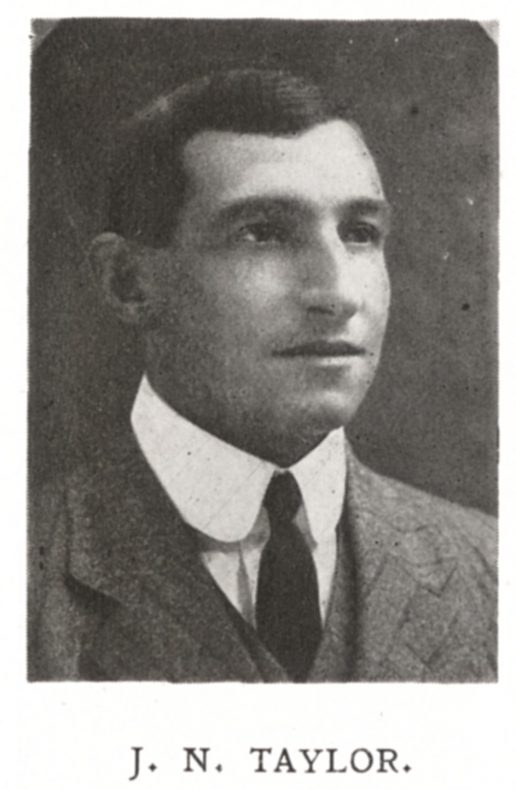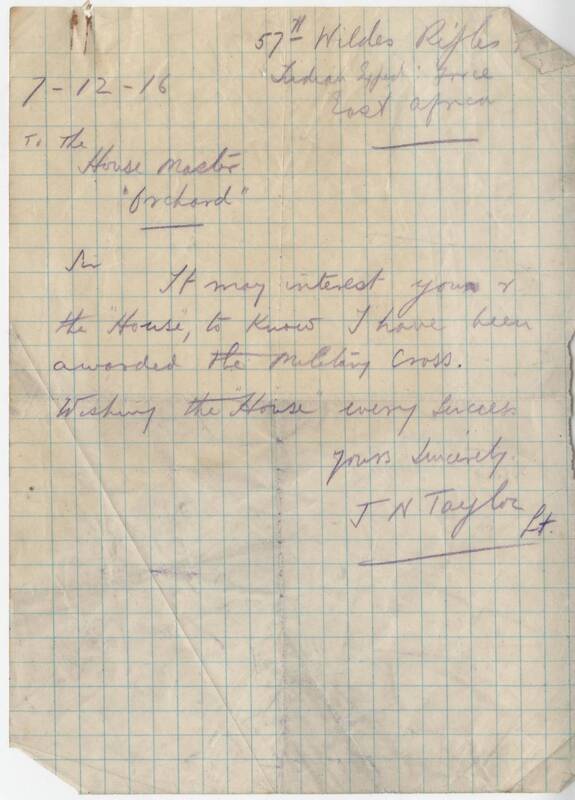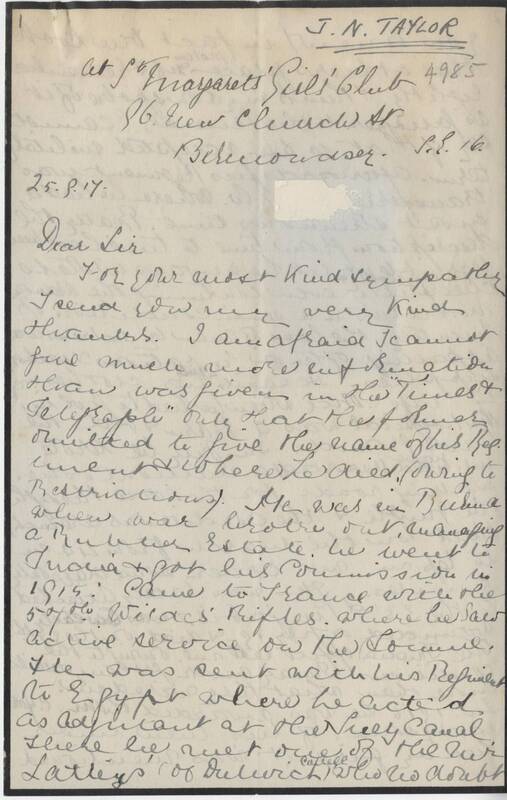James was born on January 6th 1884, the eldest son of a warehouse owner, also named James Taylor, and his wife, Clara.
He started at Dulwich in September 1896 at the same time as his younger brother Vernon, and was at the College for the next three years, the latter part of which he spent as a boarder in The Orchard. After leaving in the summer of 1899 he joined the Merchant Service and eventually went on to serve as a First Class Navigation Officer in the British India Steam Navigation Company. After almost a decade he left this line of work to settle in Southern Burma where he ran a rubber plantation and was also captain of the local rugby team.
In 1915 James went to India in order to volunteer for military service and was granted a commission in the Indian Army Reserve of Officers, subsequently being attached to the 57th Wilde’s Rifles. His new regiment was sent to France not long afterwards, where he spent time serving on the Somme. That December they were reassigned to Egypt, where he worked for a time as adjutant, before being transferred once more, to German East Africa, in July 1916. By this point he had been promoted to Lieutenant and would later be awarded the M.C. for “displaying great courage and devotion to duty in attending to the wounded under very heavy fire” during an incident at Matomondo. He would also go on to be mentioned in dispatches by General Smuts that November.
Around this time, he was transferred to the 33rd Punjabis, with whom he was serving when he was seriously wounded on July 18th 1917. He died of his wounds nine days later, on the 27th, and was buried at Dar es Salaam.
(Dulwich College)



